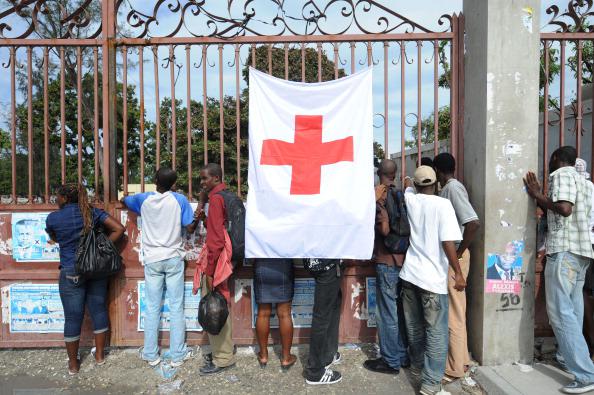The muckraking journalism site ProPublica has printed a number of highly critical pieces about the Red Cross in the last year, covering subjects including the august charity institution’s low morale and seemingly ineffective response to Hurricane Sandy. On Wednesday, ProPublica and NPR released another such scathing article, this one addressing the Red Cross’s (alleged) failure to efficiently and meaningfully spend the $488 million it raised for Haiti relief after that country was devastated by an earthquake in 2010.
The piece discusses a number of troubled relief programs launched by the organization, but the biggest takeaway factoid is this: Two high-profile Red Cross announcements of projects to build permanent homes in Haiti have led to the construction of only six homes—total—while other aid agencies have built thousands.
From the piece:
“They collected nearly half a billion dollars,” said a congressional staffer who helped oversee Haiti reconstruction. “But they had a problem. And the problem was that they had absolutely no expertise.”
That lack of expertise, ProPublica/NPR’s investigation finds, involved both a failure to hire Haitians with on-the-ground knowledge and a dearth of high-level planning competence. Top officials are also accused—as they have been in other ProPublica articles about the Red Cross—of being misleading, evasive, and unreliable in public statements about how money has been spent and how much aid has actually been provided. Read the whole investigation here.
Update, Thursday, June 4, 2015: The Red Cross has released a statement responding to the ProPublica/NPR piece.
Thanks to the generosity of our donors, almost five and a half years after the devastating earthquake in Haiti, the American Red Cross has made a difference in the lives of millions of Haitians who desperately needed help and humanitarian assistance.
These funds have helped build and operate eight hospitals and clinics, stem a deadly cholera outbreak, provide clean water and sanitation, and move more than 100,000 people out of make-shift tents into safe and improved housing. When land was not available for new homes, the Red Cross provided a range of housing solutions including rental subsidies, repairs and retrofitting of existing structures, fulfilling our promise to ensure tens of thousands of Haitians are back in homes. We also built and repaired schools, roadways and water distribution points vital to neighborhoods.
Despite the most challenging conditions, including changes in government, lack of land for housing, and civil unrest, our hardworking staff—90 percent of whom are Haitians—continue to meet the long-term needs of the Haitian people. While the pace of progress is never as fast as we would like, Haiti is better off today than it was five years ago.
The Red Cross is disappointed, once again, by the lack of balance, context and accuracy in the most recent reporting by ProPublica/NPR, which follows the pattern of all their previous Red Cross stories.
It is particularly disappointing to see our work misrepresented considering we answered more than 100 questions in writing and provided an interview with the head of our international programs.
